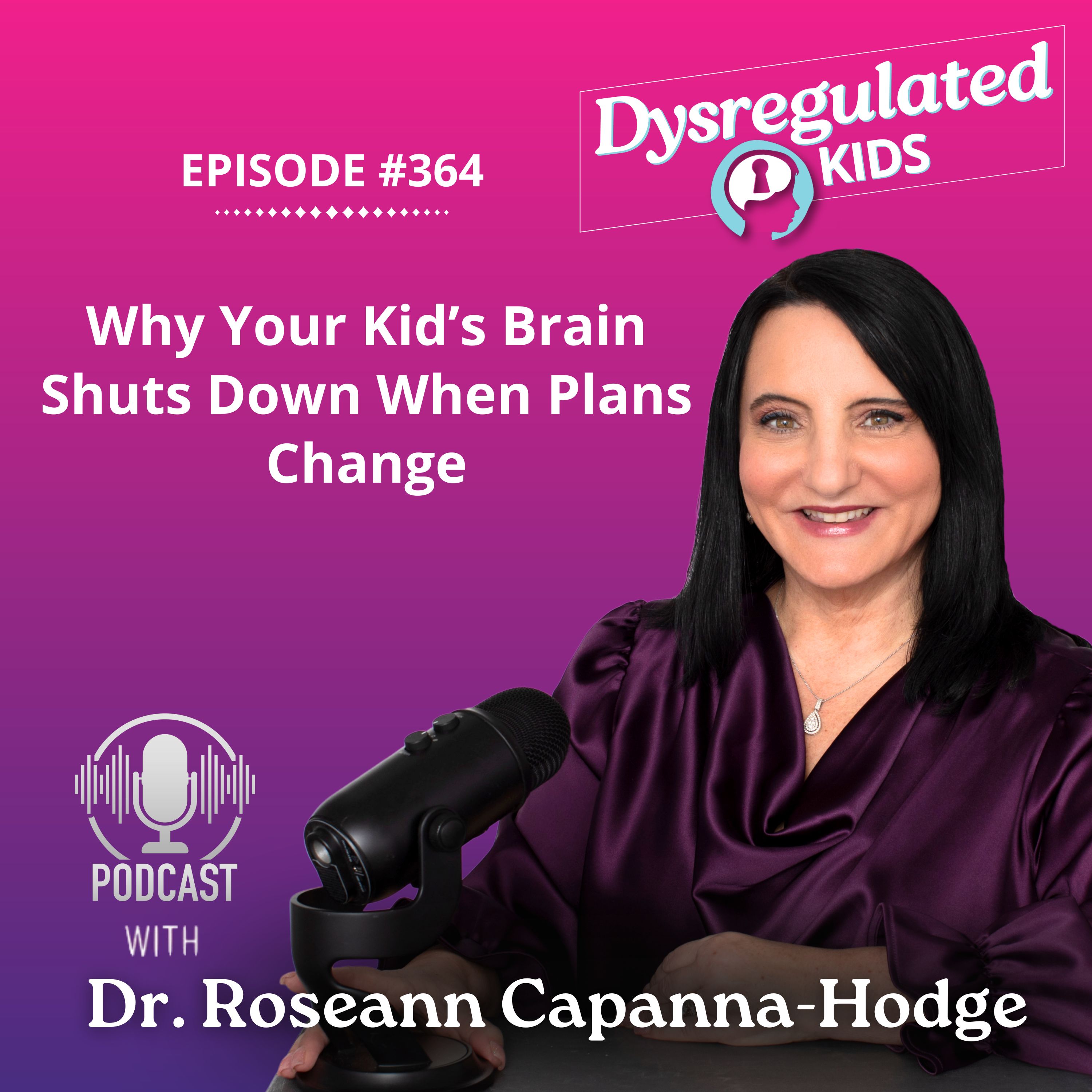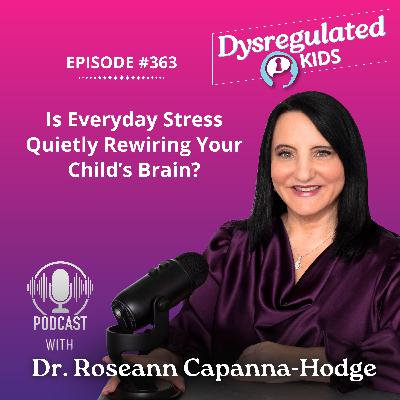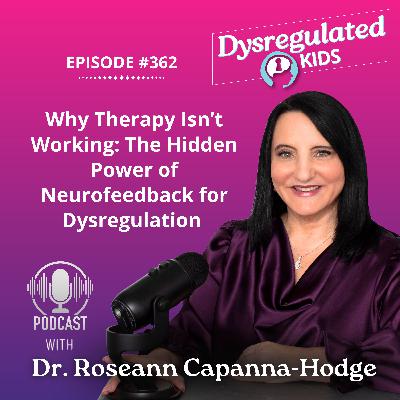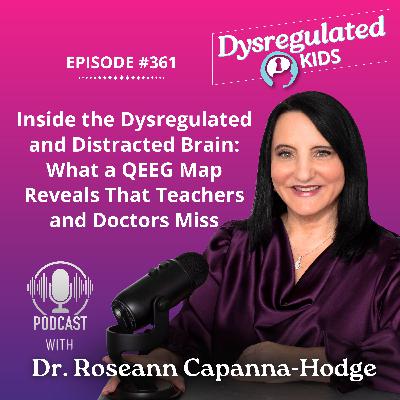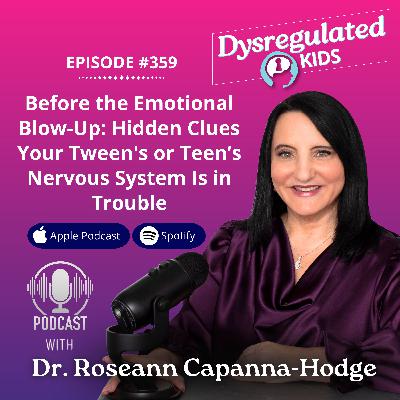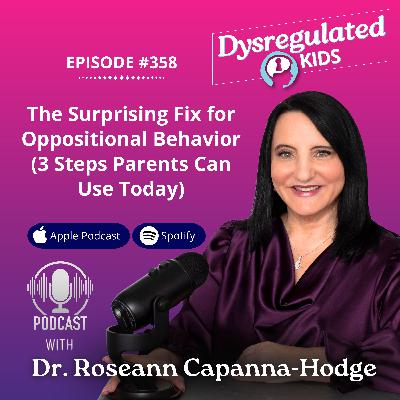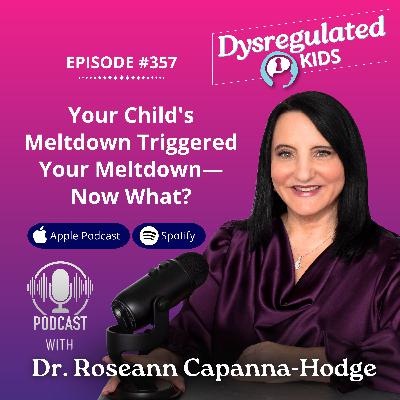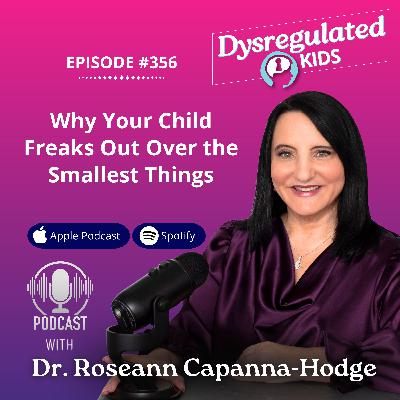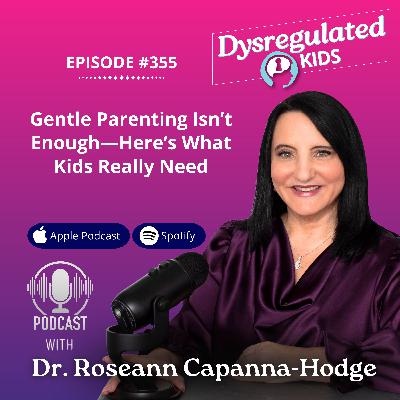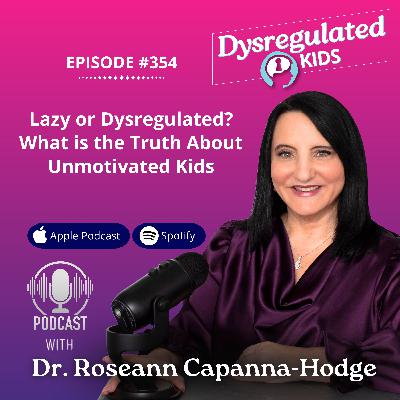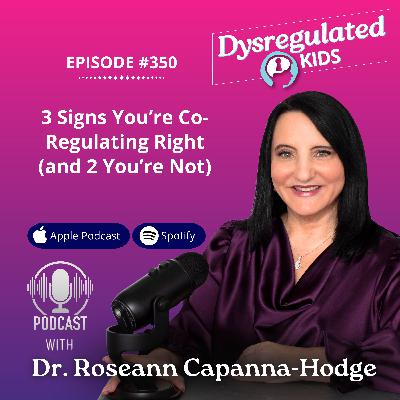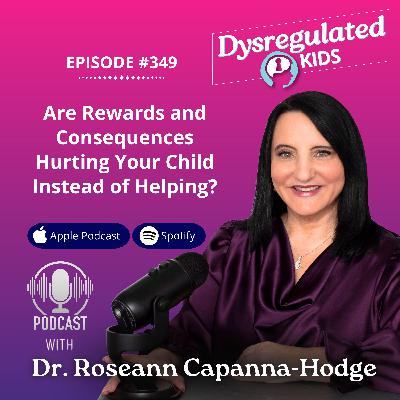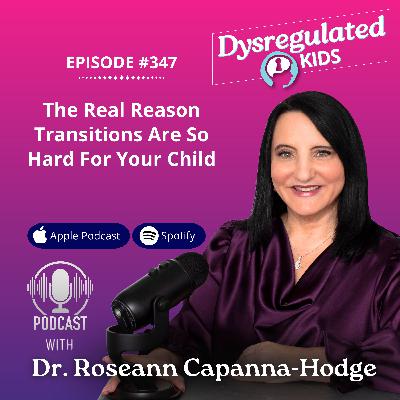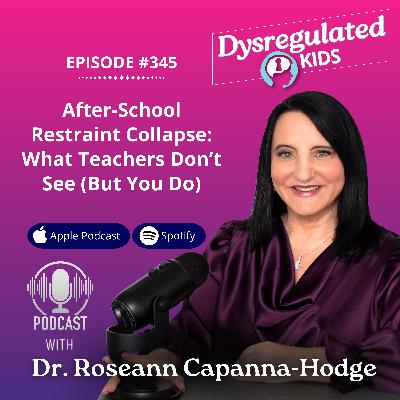353: Why Dysregulated Kids Can’t Use Their Executive Function (and What to Do About It)
Description
Parenting a child who melts down over homework or seemingly simple tasks can feel overwhelming and exhausting. You’re not imagining it—the frustration, tears, and chaos aren’t bad behavior. It’s a dysregulated brain struggling to access its control center.
In this episode, let me explain why dysregulated kids can’t use their executive function, what that means for daily life, and practical strategies to help your child regain focus, complete tasks, and strengthen their executive functioning skills.
Why does my child melt down after school?
Many parents notice that after a long day, their child becomes irritable or shuts down at homework time. This isn’t defiance—it’s a dysregulated brain that’s gone offline.
When stress builds, it hijacks the prefrontal cortex, the control center for planning, organization, and impulse control. Your child simply can’t access their executive functions or working memory until their nervous system settles.
What’s happening:
- Stress or sensory overload disrupts brain functions.
- Transitions and overstimulation lead to poor executive functioning—especially in kids with ADHD or anxiety.
- Their brain shifts from learning to survival mode.
What helps:
- Co-regulate first. Your calm presence signals safety.
- Once calm, executive functioning skills like focus, planning, and task completion return.
Let’s calm the brain first—because that’s when real learning begins.
Download the Executive Functioning Toolkit — packed with science-backed strategies you can start using today to reduce stress and improve focus.
How can I help my child focus when they can’t control their emotions?
When emotions flood in, logic and problem-solving shut down. This is common in children with ADHD, learning disabilities, or high emotional sensitivity.
- Regulate first: Deep breaths, movement, or sensory grounding can reset the brain.
- Break tasks into small, manageable steps to avoid overwhelming a child with poor executive functioning.
- Use internal self-talk modeling: Narrate your planning out loud to teach cognitive strategies like task initiation and sustained attention.
🗣️ “Once calm, your child’s executive functioning skills—like focus, organization, and problem solving—can finally do their job.” –Dr. Roseann
When your child is dysregulated, it’s easy to feel helpless.
The Regulation Rescue Kit gives you the scripts and strategies you need to stay grounded and in control.
Become a Dysregulation Insider VIP at www.drroseann.com/newsletter and get your free kit today.
What are executive functioning skills, and why do they matter?
Executive functioning skills are the brain’s Job Manager: planning, prioritizing, organizing, controlling impulses, and problem-solving. Without them, even typically developing children can struggle.
- Start with the end in mind: Visualizing outcomes improves planning and cognitive flexibility.
- Teach one skill at a time, e.g., starting a task, organizing materials, or remembering steps.
- Recognize that strengths and weaknesses vary: A child may excel at baseball stats or Legos but struggle with unexpected changes or school tasks.
How do I teach executive function to a dysregulated child?
The key is consistent, patient, and calm guidance. These are skills that can be taught without medication—even for kids with ADHD, autism spectrum disorder, or executive dysfunction.
- Use clear routines and structured steps to build organizational skills and behavioral inhibition.
- Introduce calm practices during low-stress activities like planning snacks, games, or chores.
- Incorporate brain-boosting tools: magnesium, neurofeedback, PEMF therapy, sleep, nutrition, and movement to support brain development and self regulation.
- Celebrate small wins to reinforce problem solving and flexible thinking.
When should I worry about poor executive functioning?
While some struggles are typical, watch for signs that dysregulation is interfering with multiple areas: school, social interactions, chores, or hobbies.
- Repeated task failures and frustration cycles may indicate executive dysfunction.
- Remember: It’s not bad parenting—it’s a brain that needs support.
- Early intervention and teaching skills increases attention, impulse control, and critical thinking, reducing long-term mental health risks.
Every child’s journey is different. That’s why cookie-cutter solutions don’t work.
Take the free Solution Matcher Quiz and get a customized path to support your child’s emotional and behavioral needs—no guessing, no fluff.
Start today at www.drroseann.com/help
FAQs
How can I help my child focus after school?
Start with regulation before homework. Offer a snack, movement break, or quiet time. Once their nervous system calms, attention and motivation return. Calm brains learn best.
Why does my child melt down during homework?
After a long day, your child’s brain may be overloaded. Fatigue and stress shut down executive functioning—this isn’t defiance, it’s dysregulation. Help them reset with co-regulation and short breaks.
What are signs of poor executive functioning?
Forgetfulness, messy workspaces, procrastination, and difficulty starting tasks are all signs. These kids aren’t lazy—their brain needs regulation before it can organize and plan.
How can I teach my child planning skills?
Model it out loud: “First, I’ll write the list, then check it off.” Your child learns cognitive strategies by hearing your internal self-talk in real time.
What’s the best way to calm a dysregulated child?
Co-regulation is key. Your calm presence signals safety and helps your child’s brain come back online. Try deep breathing, gentle movement, or simply staying near and grounded.


